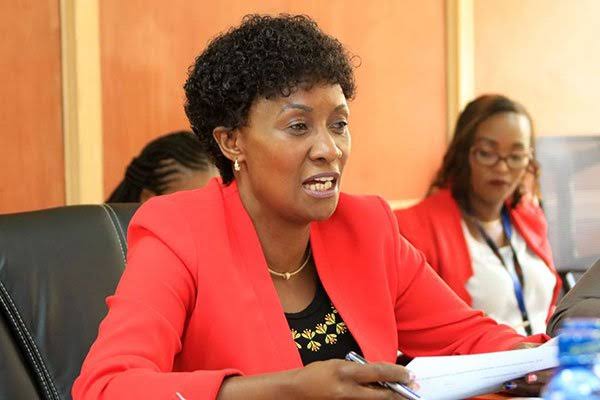Teachers Service Commission (TSC) Chief Executive Officer, Dr. Nancy Macharia, has disclosed that the Social Health Authority (SHA) turned down the enrollment of over 360,000 teachers into the government-run health insurance program.
Appearing before the National Assembly’s Education Committee, Dr. Macharia said the SHA cited inadequate infrastructure across the country as the reason it could not onboard teachers.
Dr. Macharia explained that the commission had always intended to enroll teachers in a public health insurance scheme, even during the era of the National Hospital Insurance Fund (NHIF). However, these efforts have continually faced obstacles.
She highlighted that in 2023, following challenges with the Minet insurance portal, the TSC explored shifting teachers to SHA. Unfortunately, the plan fell through after SHA revealed that it lacked sufficient capacity and would require at least Ksh.37 billion to handle the teachers’ healthcare needs.
“We met with SHA before renewing our contract with Minet for this final year, hoping to make the transition. Unfortunately, they informed us that they did not have the structures in place to support teacher enrollment. They admitted they weren’t ready to absorb teachers even this year,” Dr. Macharia told MPs.
The committee session was convened amid a growing wave of complaints from teachers across the country. Many have reported difficulties in accessing medical care despite the TSC having a Ksh.20 billion contract with Minet to provide health insurance for educators.
Committee Chairperson Julius Melly expressed outrage over the poor service teachers have continued to endure. He recounted a disturbing case of a teacher who was detained in hospital solitary confinement for three months due to an unpaid bill, despite being covered by the TSC insurance scheme.
“This kind of insurance is a joke — it’s a mongrel with no structure. You’ve got insurers, administrators, capitators, and a whole confusing system. TSC must break free from this mess,” Melly remarked.
Luanda MP Dick Maungu echoed the concerns, suggesting a revamp of the current system to improve efficiency. He proposed that teachers be grouped according to their job grades or regions to facilitate quicker approval of medical services. Maungu criticized the centralized model currently in use, saying it is bogged down by bureaucracy and leads to significant delays.
“Bliss Health Care is the main capitator for teacher insurance, but due to the sheer volume of cases, they’re unable to process approvals efficiently. Clustering teachers regionally or by job group would make it easier to manage. The current system is clearly overwhelmed,” Maungu pointed out.
In response, Dr. Macharia acknowledged the systemic shortcomings but emphasized that a major constraint to delivering comprehensive health coverage is the lack of sufficient funding. She told the committee that delays in disbursing funds to the insurance consortium further aggravate the situation.
“We genuinely want our teachers to receive quality healthcare, but this cannot happen without adequate financial support. In many instances, we delay payments to providers, which limits their ability to deliver,” she explained. She urged the committee to consider increasing the TSC health insurance budget to improve service delivery and reduce complaints from the teaching workforce.
The committee pledged to follow up on the issue, with members expressing concern that the current arrangement is failing educators who form the backbone of Kenya’s public education system. They emphasized the need for urgent reforms to ensure that teachers have access to reliable, accessible, and comprehensive health services.





